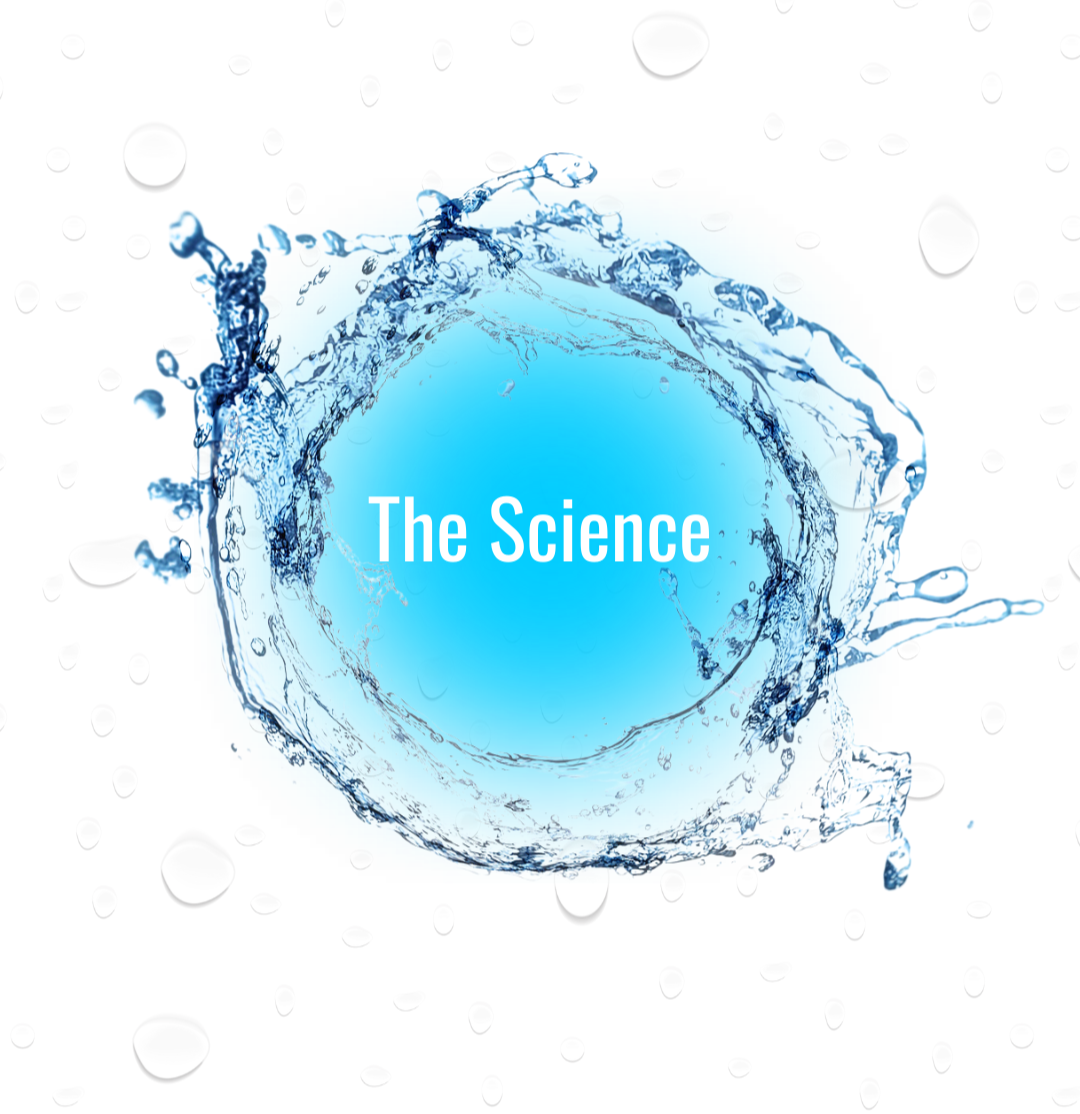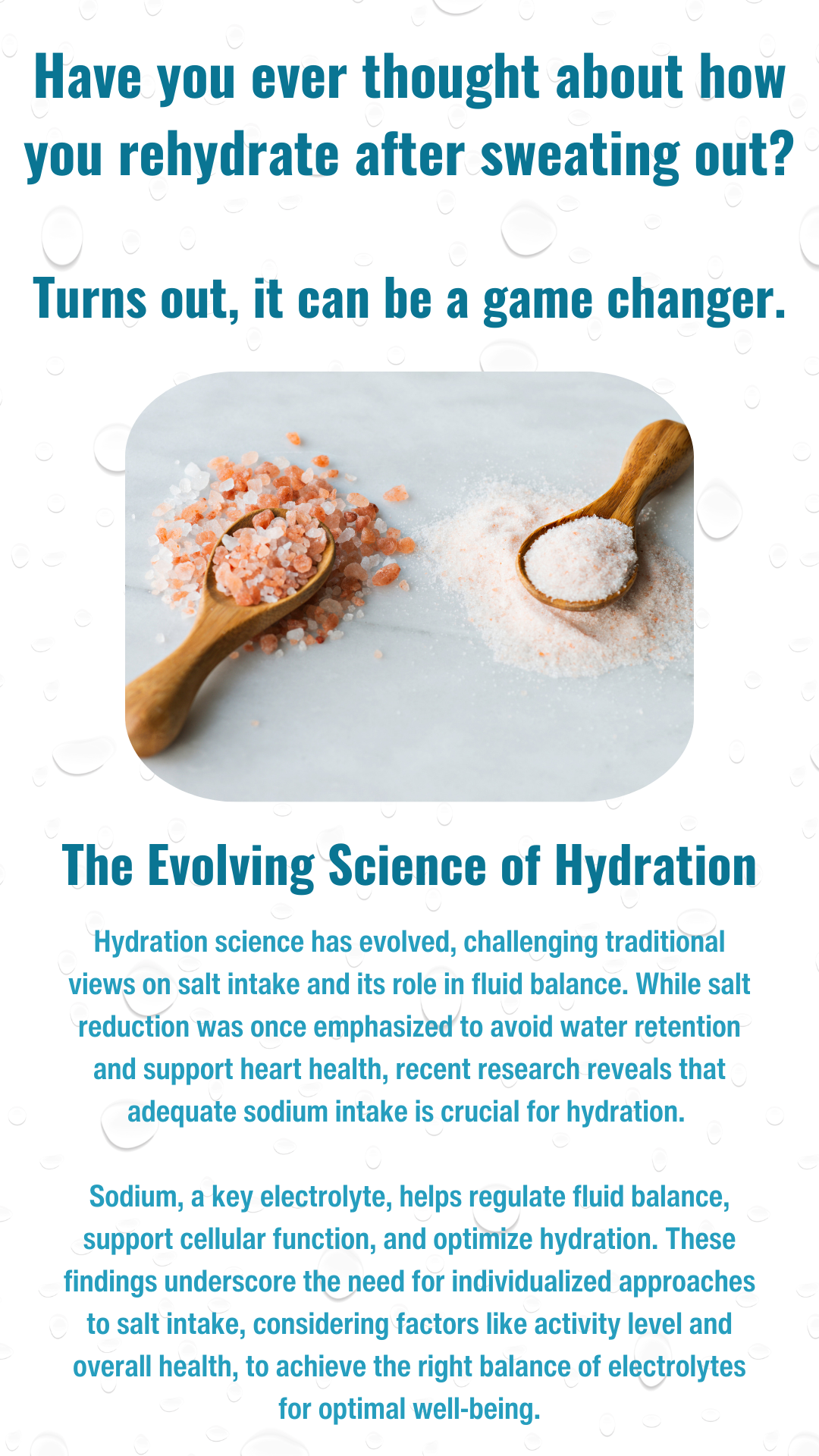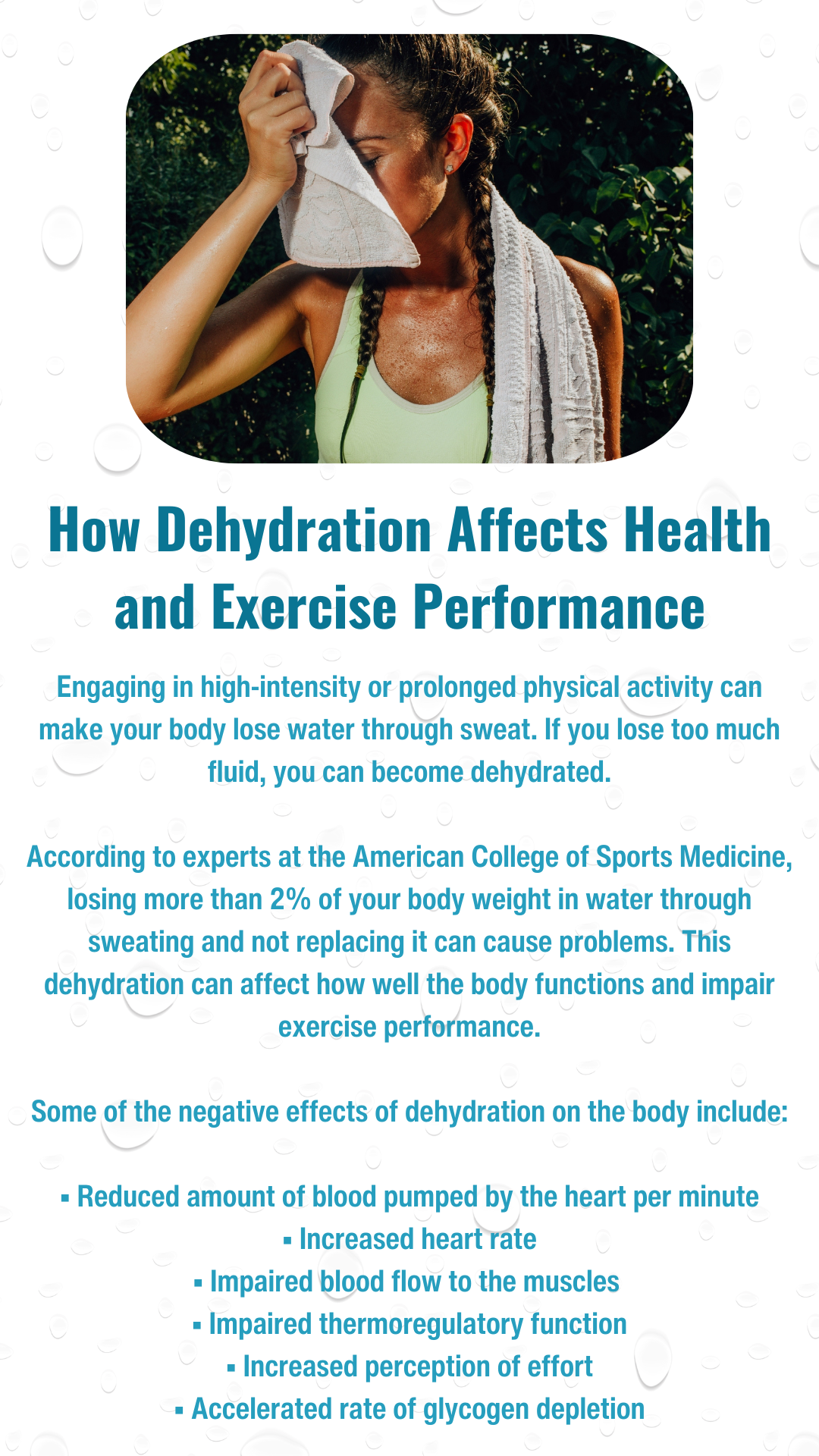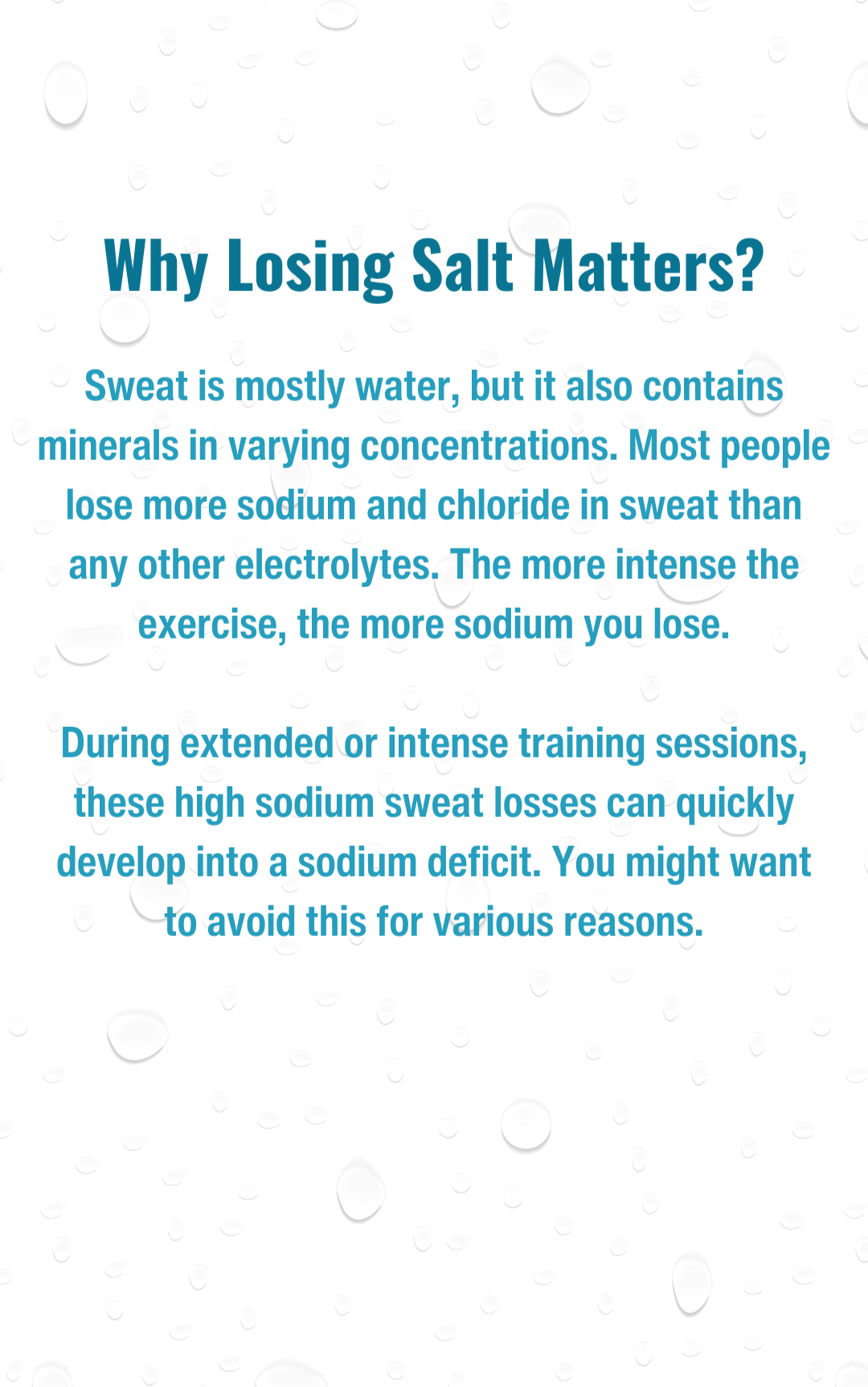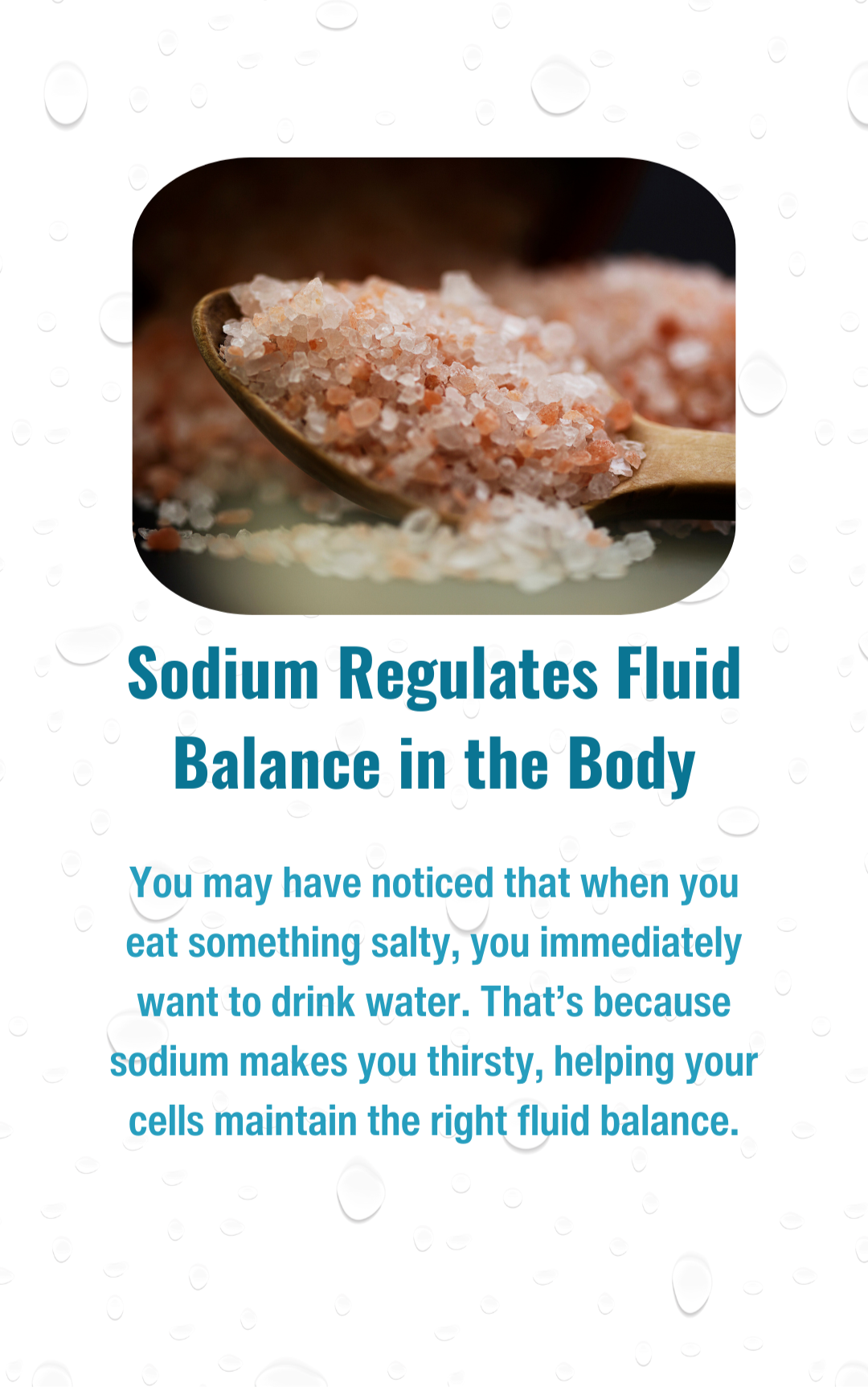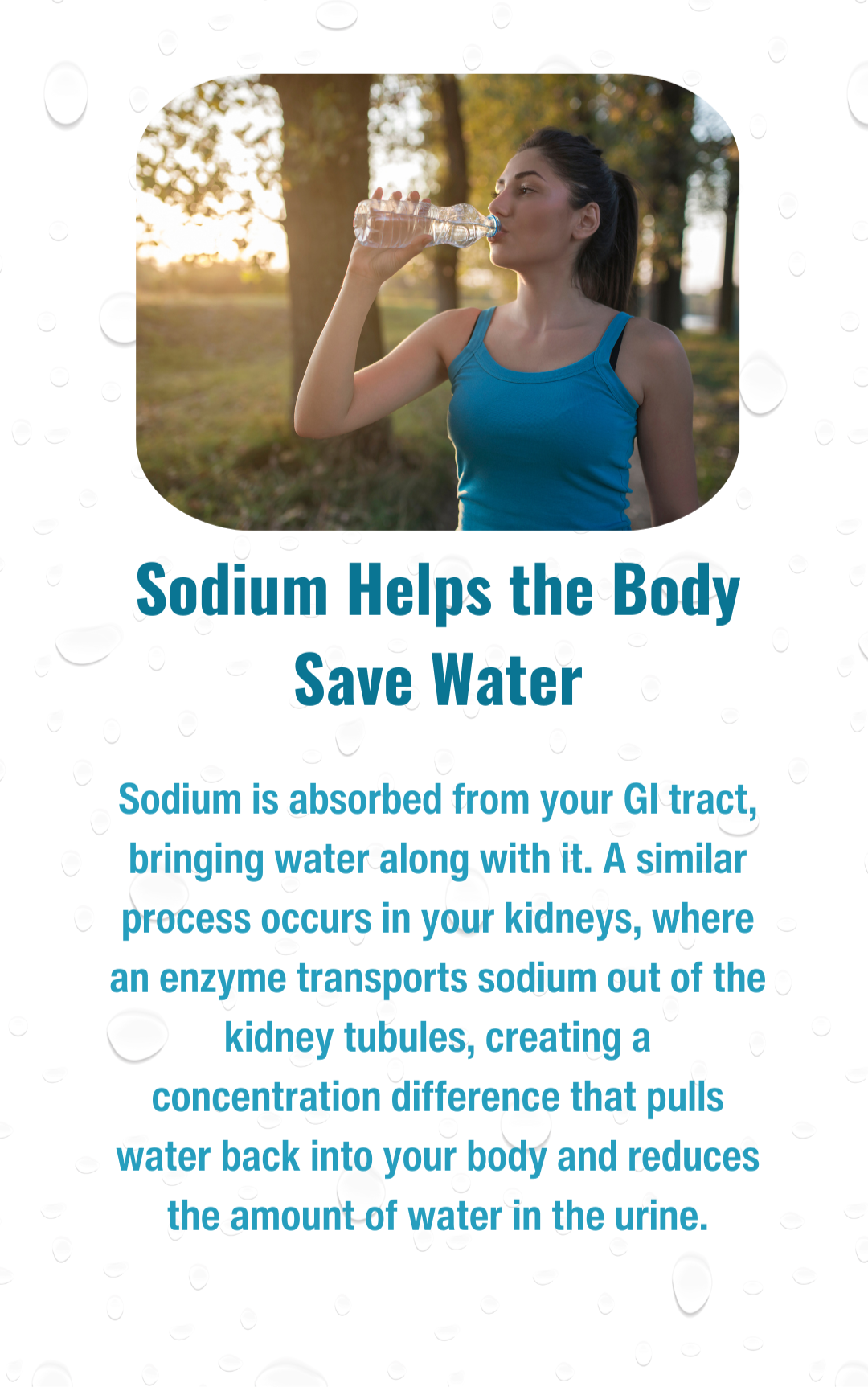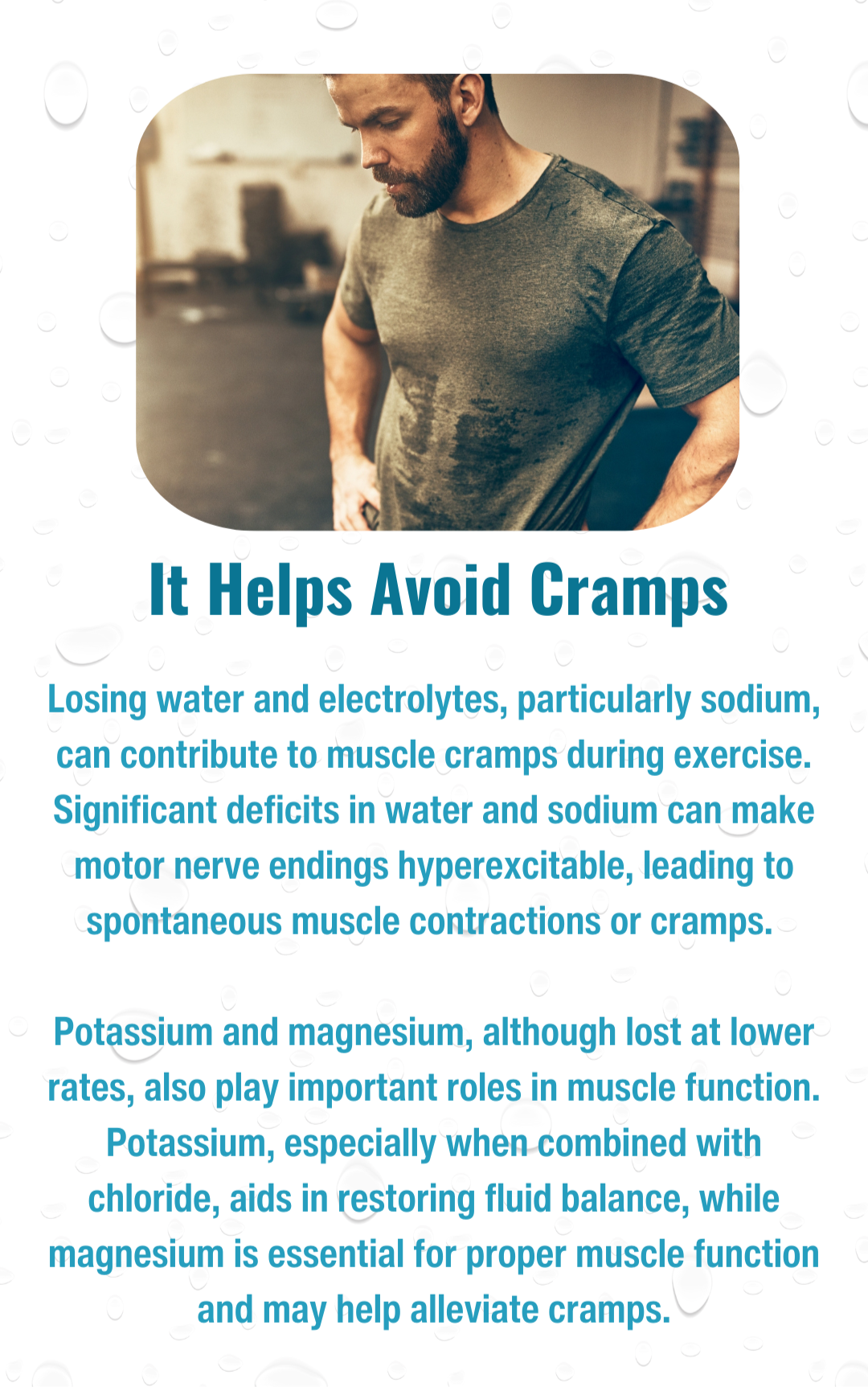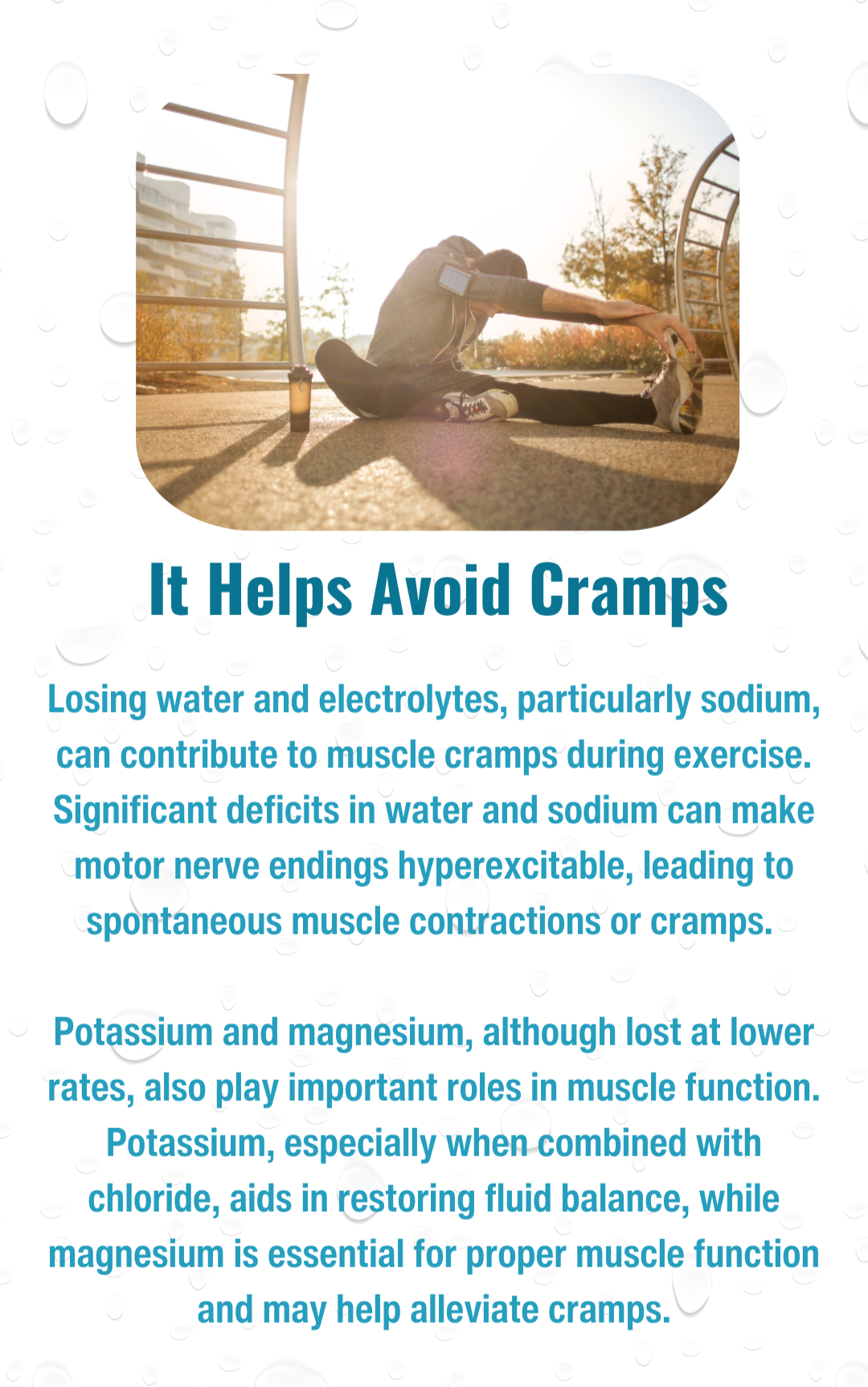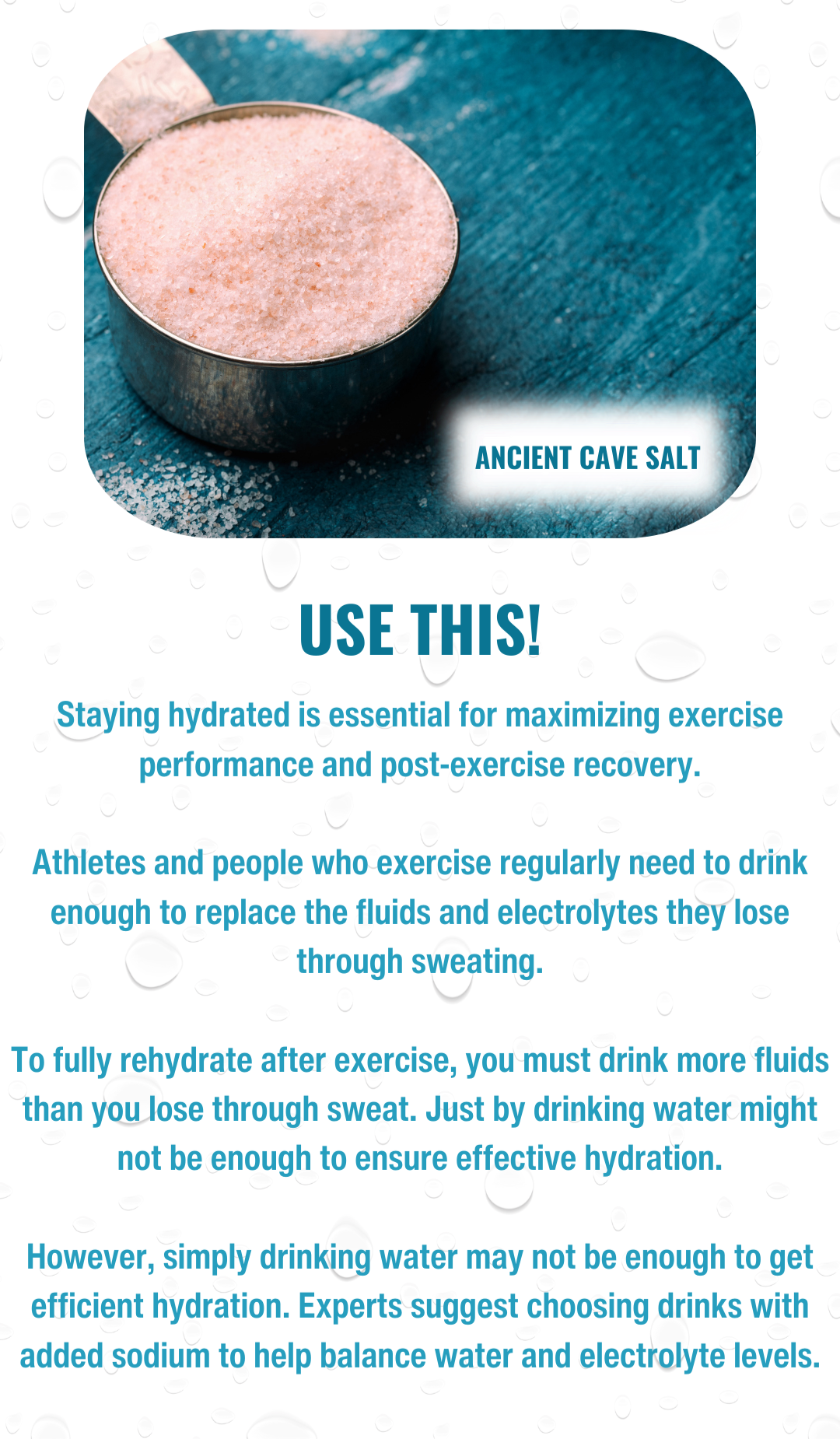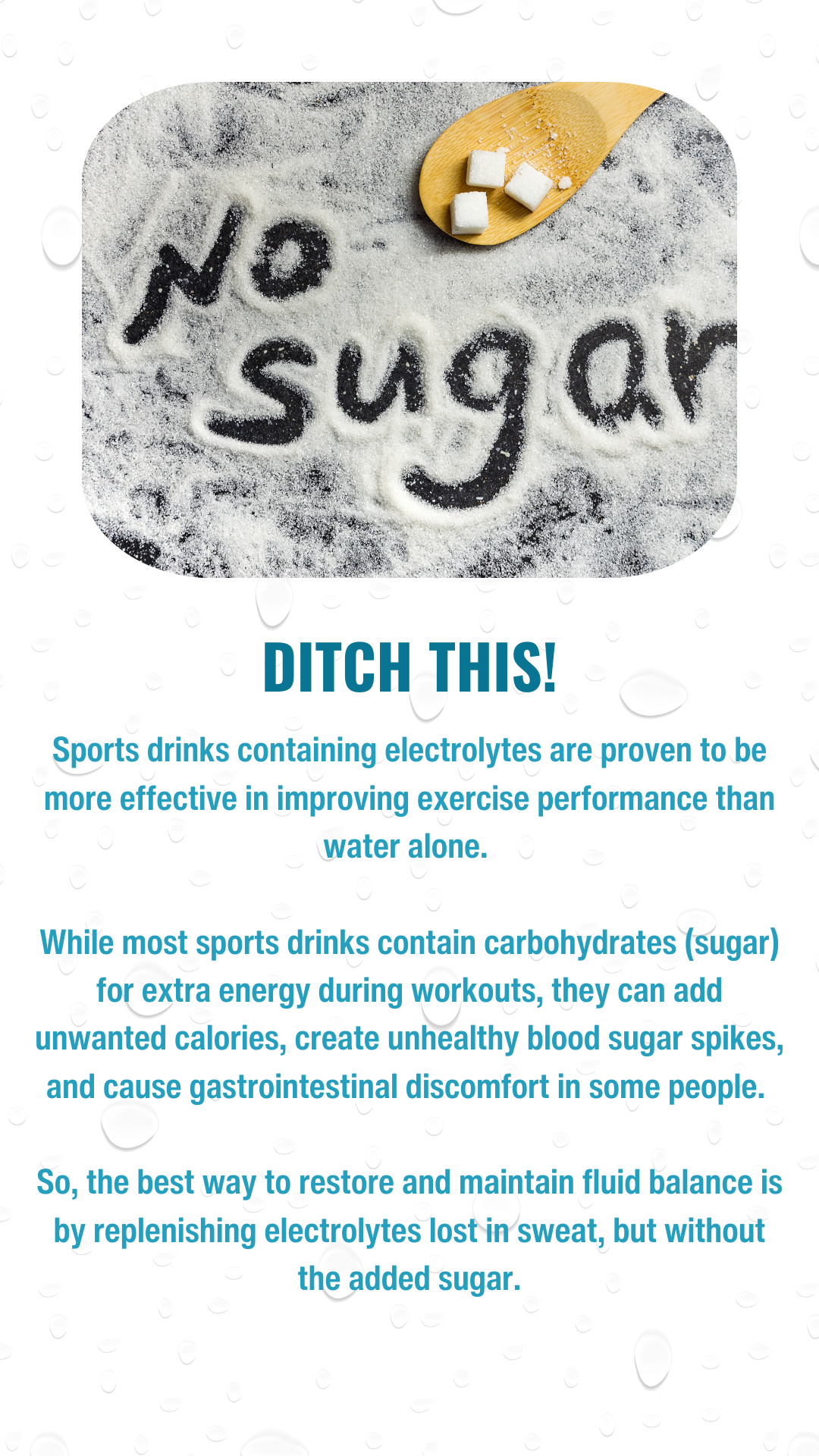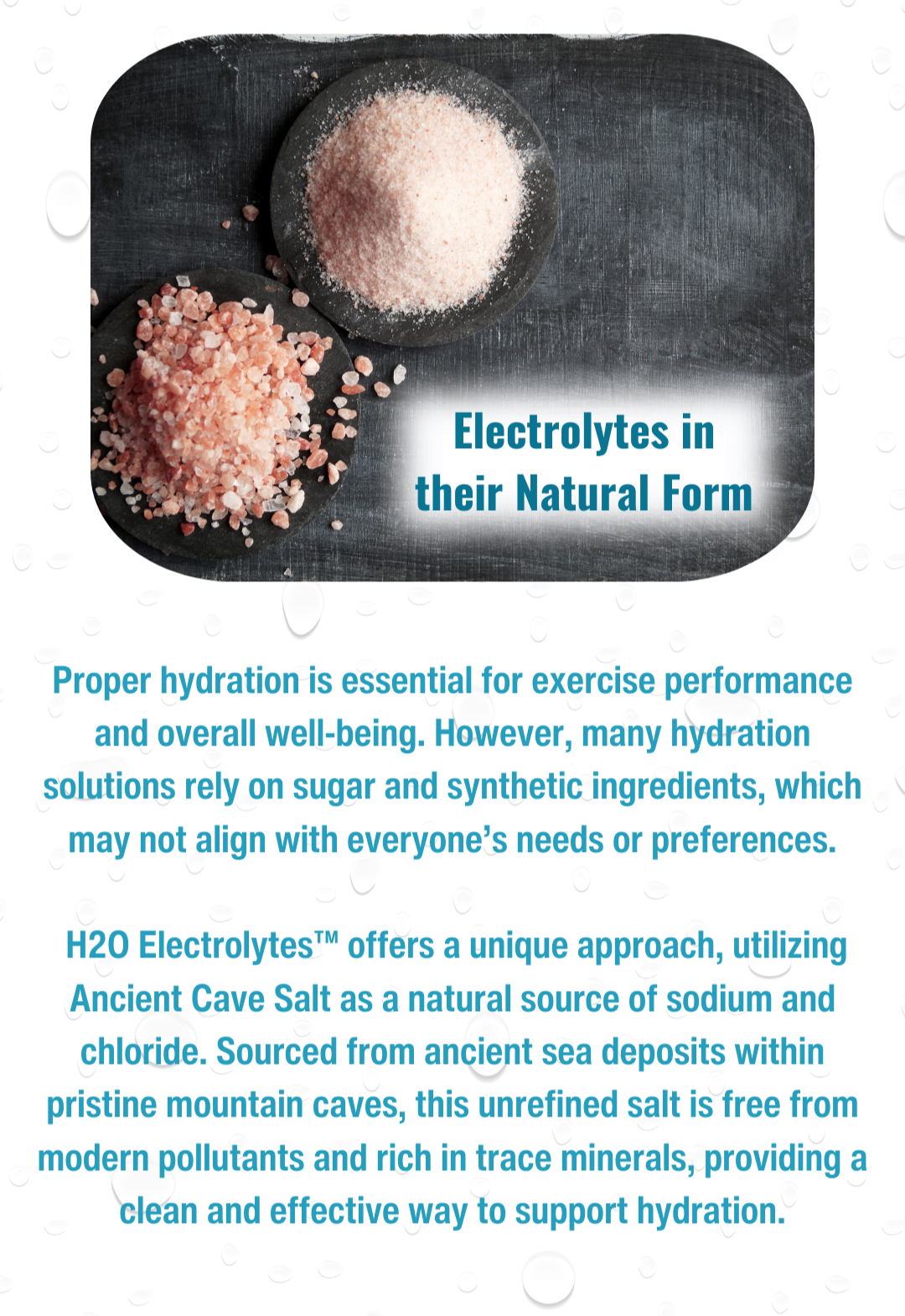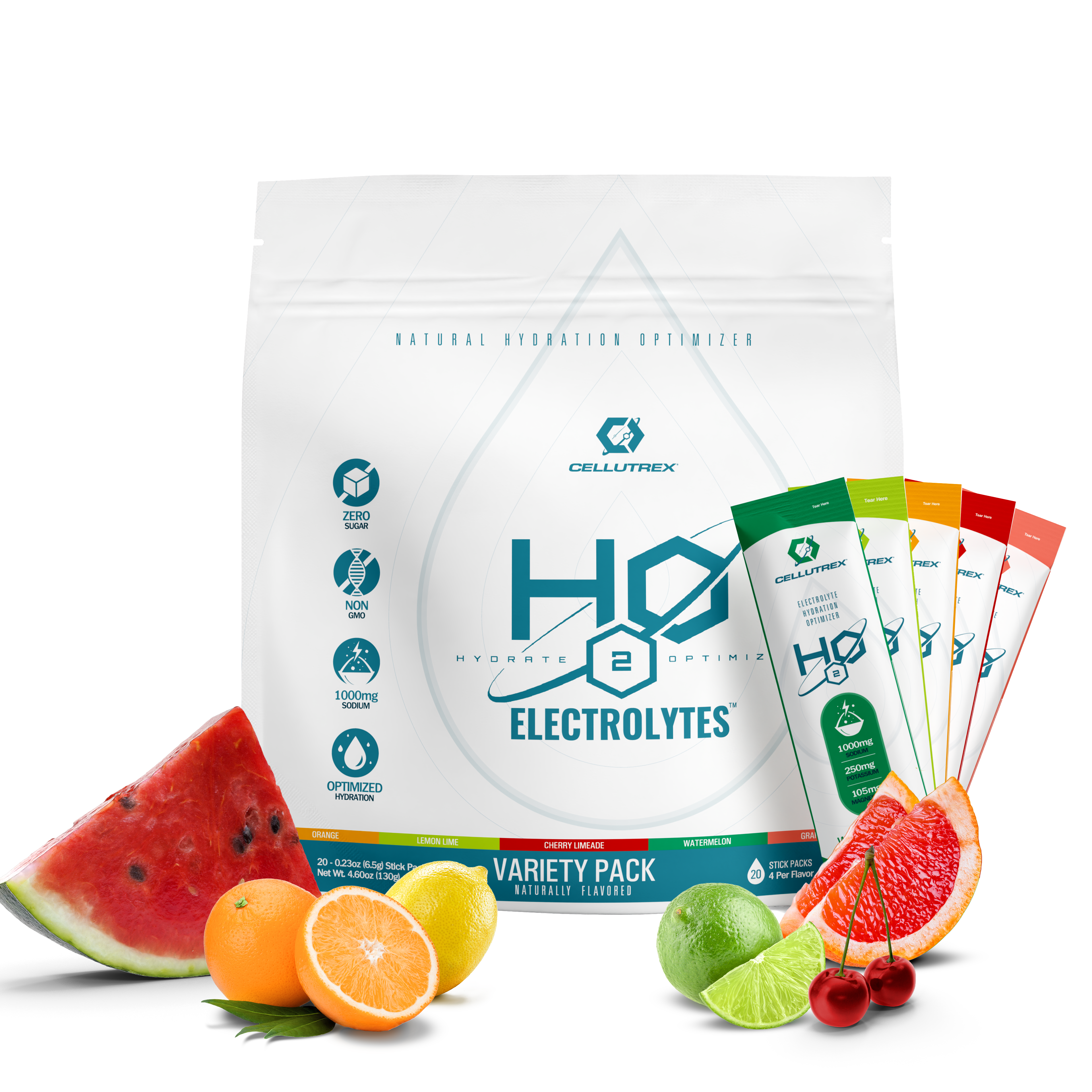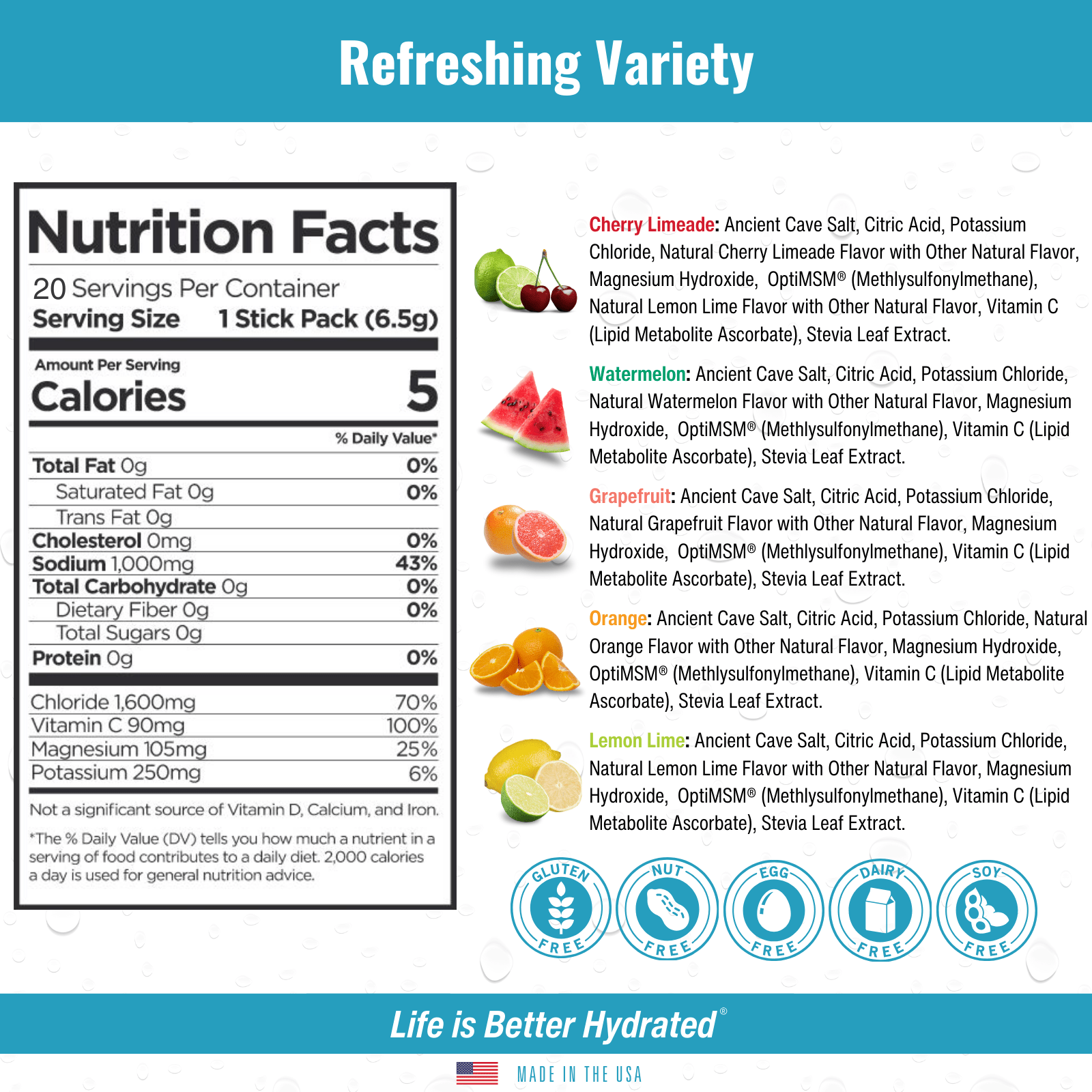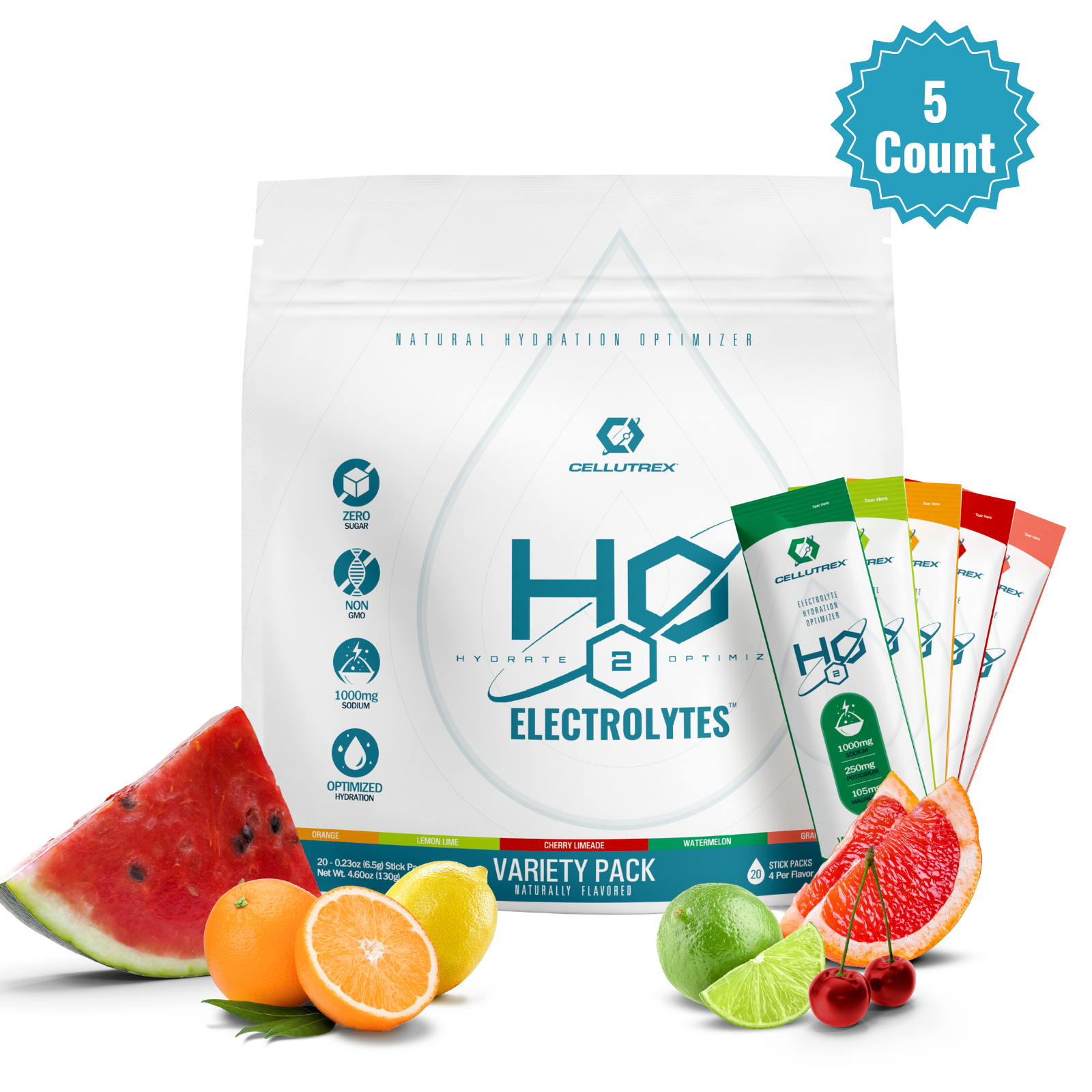References
1- Sports Medicine. Drinking Strategies: Planned Drinking Versus Drinking to Thirst. Available: https://www.ncbi.nlm.nih.gov/pmc/articles/PMC5790864/
2- Journal of the American College of Sports Nutrition. Hydration and Physical Performance. Available: https://sci-hub.se/https://doi.org/10.1080/07315724.2007.10719656
3- Nutrition Bulletin. Hydration in sport and exercise: water, sports drinks and other drinks. Available: https://onlinelibrary.wiley.com/doi/full/10.1111/j.1467-3010.2009.01790.x
4- Sports Science Exchange. Sodium: The forgotten nutrient. Available: https://www.researchgate.net/profile/Michael-Bergeron4/publication/237813192_Sodium_The_forgotten_nutrient/links/54986b0a0cf2519f5a1de366/Sodium-The-forgotten-nutrient.pdf
5- Nutrients. Compositional Aspects of Beverages Designed to Promote Hydration Before, During, and After Exercise: Concepts Revisited. Available: https://www.mdpi.com/2072-6643/16/1/17
6- Alternative and Complementary Therapies. Salt Cave Therapy: Rediscovering the Benefits of an Old Preservative. Available: https://www.liebertpub.com/doi/10.1089/act.2010.16302

